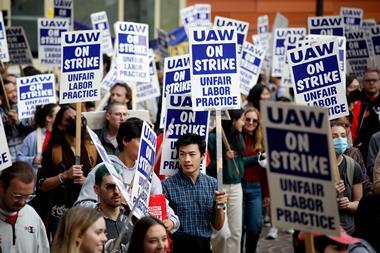Concerns about the pay and working conditions of graduate students and postdocs in academia have boiled over in North America and are bubbling up in the UK and elsewhere in Europe. These strikes have already led to notable victories for groups in the US and Canada on pay and benefits.

A major catalyst for all this activity was an unprecedented 40-day walkout by tens of thousands of academics at the University of California (UC) system seeking better pay and working conditions, which in early 2023 yielded record contracts for UC postdoctoral scholars, academic student employees and graduate student researchers. This major and very public win inspired action not only at other US universities but also among government scientists to fight for improved compensation through unionisation, including those working at dozens of government departments across California and thousands of early-career researchers at the US National Institutes of Health.
Beyond the US, graduate student workers at several universities in Canada are striking, advocating for better wages to cope with the rising cost of living. There are some promising developments – earlier this month the Canadian government committed to significantly up investment in its graduate students and postdocs after more than 20 years of stagnating stipends.
Meanwhile, developments in the UK have been slower, with waves of strikes ongoing for several years now. Despite a recent victory related to academic pensions, concerns regarding salaries, working conditions and pay discrepancies remain unsolved.
Graduate students and postdocs need to fully focus on their research, but financial struggles often mean that they take on part-time work to make ends meet. That slows their progress and checks their momentum. ‘Stipend increases will help students fully devote themselves to their graduate work, and that’s really important – it will result in higher quality research, and it will actually shorten the time to degree or postdoc completion,’ explains Lisa Kalynchuk, vice president of research and innovation at the University of Victoria in Canada.
Such pay boosts will also make the research enterprise more diverse and inclusive. Being underpaid, graduate students often need not only side-gigs, but also financial support from family or loans to complete their studies. Greater solvency will mean that advanced degrees in the sciences are more accessible to those who are less privileged and that will make the scientific workforce richer and less homogenous.

















No comments yet